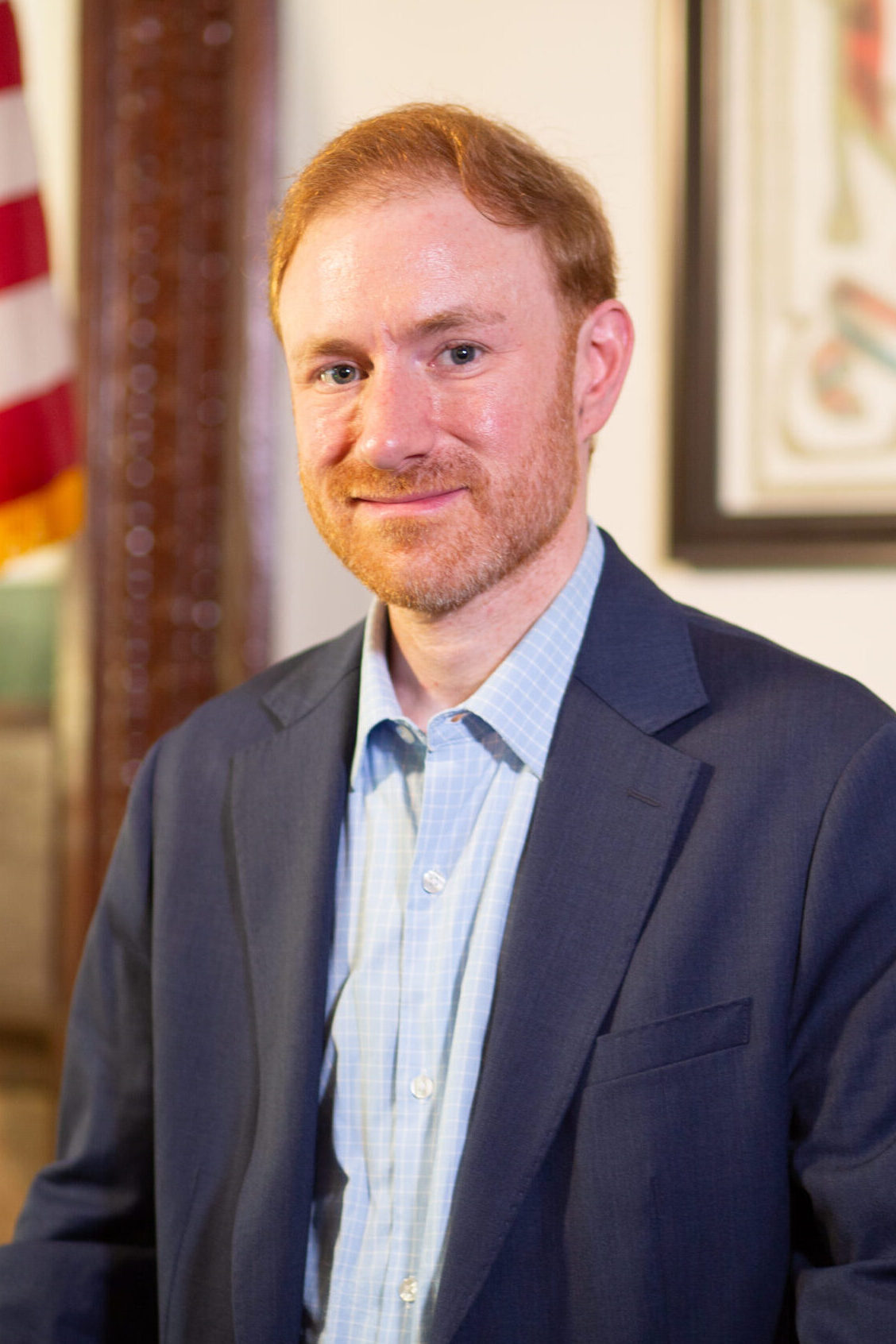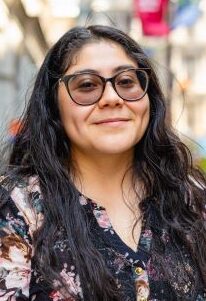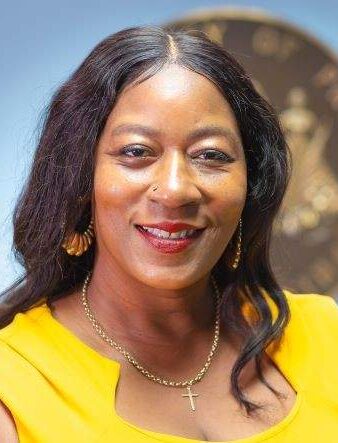Since 2020, The Philadelphia Citizen and Accountability Lab have named and famed high-integrity city workers who are all-stars in their commitment to providing the best service to Philadelphians. At a time when the national discourse has become distinctly negative, we want to flip the script and move away from “naming and shaming” corrupt leaders and towards “naming and faming” public officials who are working with integrity to deliver and build better public services in Philadelphia.
We’ve honored four cohorts of Integrity Icons and we are proud to introduce the 2025 year winners — you can read about all of them below.
![]()
The 2025 Integrity Icon Celebration and Awards Ceremony
Join us Thursday, May 22, 6-7:30pm at the Fitler Club Ballroom, 1 South 24th Street, Philadelphia where we will celebrate this year’s winners. Complimentary drinks and light bites will be provided. The event is free (use code INTEGRITY), but RSVP required:
Integrity Icon is a global campaign by D.C.-based Accountability Lab that is powered by citizens in search of honest government officials. Five public servants are selected each year to be celebrated after a rigorous nomination, vetting and judging process.
Integrity Icon focuses on public servants because they are a community that is not often recognized for the invaluable and essential work that keeps this city functioning. Creating role models in public service serves two purposes: To celebrate those who are changing the narrative of city government in Philadelphia to one of integrity and compassion; and to demonstrate to citizens that a high integrity career in government is one worth aspiring to, and is a key to a strong civil society that works for all residents.
Integrity Icon Philadelphia is made possible, in part, thanks to the generous support of the Thomas Skelton Harrison Foundation.
The campaign begins with a public announcement and formal press launch at which time we open up nominations. Anyone living in Philadelphia can nominate an Integrity Icon online. Our team narrows down the field to the top 20 to 30 individuals based on a set of criteria in accordance with Accountability Lab standards being that the nominee:
- Promotes and maintains high standards of professional ethics;
- Provides service impartially, fairly and equitably and without bias;
- Utilizes resources efficiently and effectively;
- Responds to people’s needs: citizens are encouraged by the candidate to participate in the governance process;
- And renders an accountable and transparent public administration aimed at improving public services.
We look for evidence that they embody these principles, can mentor and teach students and coworkers, and would be an active participant and advocate for the Integrity Icon program.
The shortlist of nominees is carefully vetted — this includes talking to references, employment checks, interviews, and online research. Finally a panel of independent judges select our top five nominees who are named Integrity Icons.
Five nominees are considered winners and receive the title of an Integrity Icon every year. We introduce their work and impact to the public via social media, YouTube videos, and editorial profiles.
We honor the Icons at a celebration. The program includes speakers, food and drink, music, and an awards ceremony. We celebrate the Integrity Icons in pink-carpet style in front of local officials, VIPs, the media and the public.
We work to connect Icons over the course of the year, supporting them to share ideas, collaborate and continue to push for integrity within their institutions. A lot of the time, the recognition that comes with the campaign has not only heightened the Icons’ motivation to advocate for change, but also given them the respect and leverage to convince power-holders in their institutions to create new policies and processes that fosters greater accountability and better public service delivery.
It can also elevate one’s visibility on the national stage. For example, one of Philadelphia’s 2020 Integrity Icon, Richard Gordon, says that winning the award was part of what led him to be named America’s principal of the year.
Integrity Icon is more than just an awards ceremony. It is a valuable way to continue to advance positive change in public service and be recognized within an international network. Read more about the program in The Citizen, The Economist, and BBC. And learn more about the Integrity Icon network worldwide.
MEET PHILADELPHIA’S INTEGRITY ICONS

Sarorng Sorn
2025 Integrity Icon
Nathan Sallard
2025 Integrity Icon
Charlene Samuels
2025 Integrity Icon
Omar Crowder
2025 Integrity Icon
Yu-Shan Chou
2025 Integrity Icon
MEET THE 2024 ICONS

Eric Kapenstein
2024 Integrity Icon
Deion Sumpter
2024 Integrity Icon

Tracey Williams
2024 Integrity Icon
Adara Combs
2024 Integrity Icon
Lesha Sanders
2024 Integrity Icon
MEET THE 2023 ICONS

Tu Huynh
2023 Integrity Icon

Maria Andrea Giraldo Gallo
2023 Integrity Icon

Ryan Barksdale
2023 Integrity Icon

Yessenia Gutierrez
2023 Integrity Icon

Kea R. Greene
2023 Integrity Icon
MEET THE 2022 ICONS
Rebecca Lopez Kriss
2022 Integrity Icon
Lori Maple Hayes
2022 Integrity Icon
Stephanie Ridgeway
2022 Integrity Icon
Leah Wood
2022 Integrity Icon
Lauren Young
2022 Integrity Icon
MEET THE 2020 ICONS
Dr. Ruth Abaya
2020 Integrity Icon
Carlos Aponte
2020 Integrity Icon
Richard M. Gordon IV
2020 Integrity Icon
Thomas Quinn
2020 Integrity Icon
Shaquita Smith
2020 Integrity Icon
Sarorng Sorn
2025 Integrity Icon
Director of Immigrant/Refugee Affairs and Language Access Services
Sarorng Sorn, Director of Immigrant/Refugee Affairs and Language Access Services for the Department of Behavioral Health and Intellectual disAbility Services, is a tireless advocate for immigrants and refugees. Her colleagues call her a “visionary” who “teaches people to know their rights and what the city is obligated to provide for them.”
Nathan Sallard
2025 Integrity Icon
Client Services Manager for the Office of Safe Neighborhoods
Nathan Sallard’s work has been described as nothing short of transformative. “When Nate was first hired, the retention rate for clients in this program was only 35 percent, meaning many participants didn’t remain employed after 90 days. Since Nathan’s arrival, he has dramatically improved this metric, boosting retention to 78 percent,” his colleagues explain. “His work with individuals associated with violent groups has had a direct impact on reducing gun violence and increasing employment stability, completely shifting the trajectory of the program.”
Charlene Samuels
2025 Integrity Icon
Constituent Services Representative
Charlene Samuels is a Constituent Services Representative in the Office of Minority Leader Kendra Brooks; her coworkers insist that “Ms. Charlene does not tolerate mediocrity in any City department or non-profit organization – and she does not take no for an answer when it comes to advocating for constituents!”
Omar Crowder
2025 Integrity Icon
Northeast High School Principal
Omar Crowder is principal of Northeast High School, the largest public high school in the city; he is described as “a pillar of strength for both his students and the entire school community” by 2020 Integrity Icon Richard Gordon, now an assistant superintendent for the School District.
Yu-Shan Chou
2025 Integrity Icon
Language Access and Engagement Specialist
Yu-Shan Chou is Language Access and Engagement Specialist for the Office of the City Commissioners; her coworkers say her “dedication to the community she serves — including her volunteer efforts with the Welcoming Center – and the department for which she works is boundless. Her kindness and work ethic are unmatched.”
MEET THE 2024 ICONS
Eric Kapenstein
2024 Integrity Icon
Deputy Commissioner at the Office of City Commissioner Seth Bluestein
Eric Kapenstein worked around the clock to ensure all Philadelphians’ voices were heard in the 2020 presidential election. He was responsible for creating new processes, including the counting process for an unprecedented amount of mail-in ballots, He is also behind the expansion of language access for non-English proficient voters.
Deion Sumpter
2024 Integrity Icon
Director of Group Violence Intervention at Group Violence Intervention
Deion Sumpter leverages his experience with incarceration to build strong, lasting relationships in communities through weekly, on-the-ground outreach. He identifies members of the community who are at high risk for gang activity and provides them with services including employment, relocation, and therapy. Over 1,000 group members have been identified so far.
Tracey Williams
2024 Integrity Icon
Deputy Commissioner at the Department of Records
Tracey Williams listens to deed fraud victims with patience, warmth, and understanding. She is committed to educating people in and out of the office on how to spot scams and access resources to prevent fraud. Tracey is a role model and mentor for other City employees, especially women of color.
Adara Combs
2024 Integrity Icon
Philadelphia Victim Advocate at the Office of the Victim Advocate
Adara Combs wraps her arms around the victims and co-victims of trauma to connect them with the resources they need to heal. She is the first person to hold the position of Philadelphia Victim Advocate. Under her leadership, the Office will launch the Crime Scene Cleanup pilot, a unit that will handle the needs of families and communities after a crime has occurred and police have moved on from the scene.
Lesha Sanders
2024 Integrity Icon
Director of Problem Solving Courts at Municipal Court, First Judicial District of Pennsylvania
Lesha Sanders does everything possible to empower clients through their struggles toward treatment, employment, reconnection with loved ones and a better quality of life. Her office serves as a resource hub and drop-in center, equipped with a “closet” that offers clothes to clients in need. Lesha promotes educational opportunities to colleagues through routine email lists.
MEET THE 2023 ICONS
Tu Huynh
2023 Integrity Icon
Program Manager for the Office of Arts, Culture, and the Creative Economy.
Tu has spent his lifetime supporting artists and art that reflects who we are as a city, our darkest times and our hopes for the future. His approach: “Invite artists in. Give them a seat at the table. Let’s explore how we can present issues.”
Maria Andrea Giraldo Gallo
2023 Integrity Icon
Director of Language Access Programs in the Office of Immigrant Affairs
Maria is a multilingual immigrant from Colombia who found a job in the City’s accounts payable department, before moving over to the Office of Immigrant Affairs, where she quickly rose to Director of Language Access Programs. In her role, she committed to recognizing the humanity of all Philadelphians and her focus on instilling a sense of pride and dignity among oft-overlooked communities made her stand out. “Language access is a civil right,” she says. It doesn’t matter how many resources are available in Philadelphia if people are unable to take advantage of them because of language barriers.
Ryan Barksdale
2023 Integrity Icon
Community Relations Officer for the Philadelphia Police Department’s 25th District
Officer Ryan Barksdale, a Community Relations Officer in the 25th District — encompassing Hunting Park, Franklin, Feltonville, Juniata Park, and parts of Fairhill and Upper Kensington — is a celebrated member of the community. He is the kind of man who devotes his personal time to serving others and who commits his own resources when he knows it will fulfill the community’s needs. Barksdale joined the PPD in 2006 and had served as a patrol officer for 11 years when he was recommended for the position.
Yessenia Gutierrez
2023 Integrity Icon
Senior Labor Compliance Investigator for the Department of Labor, Office of Worker Protection
Gutierrez has worked on wage theft, worker retaliation and Covid protections cases. She specializes in investigating claims where a worker alleges their employer has violated the City’s Fair Workweek law and complex cases in which employees may not have proper documentation, or cases with a lot of data to sift through. A native Spanish speaker, she also translates for the office, as Philadelphia’s Latino population grows.
Kea R. Greene
2023 Integrity Icon
Member Services Manager for the Mayor’s Office of Civic Engagement and Volunteer Services
In her role, Greene focused on supporting and training the city’s AmeriCorps volunteers. She provided them with tools that would enable them to go out and support Philly residents they were assigned to serve. Her proudest achievement: arranging for Philadelphia Lawyers for Social Equity to train the AmeriCorps volunteers in record expungement — that is, legally helping folks remove criminal charges that may be on their public records and could be holding them back from opportunities like employment, housing, funding, and more.
MEET THE 2022 ICONS
Rebecca Lopez Kriss
2022 Integrity Icon
Deputy Commissioner for Policy, Outreach and Taxpayer Assistance in the Department of Revenue
As a steward of our city’s tax dollars, Lopez Kriss is in the center of some of the most important—and opaque—work in Philadelphia government. She pushes for integrity by making the Revenue Department more transparent, navigable and easy to understand for citizens so they know their rights—and know what help is available.
Lori Maple Hayes
2022 Integrity Icon
Director of Urban Forestry at Philadelphia Parks and Recreation Department
Hayes is the person in charge of planting the trees that make our city more beautiful and livable. She won, in part, for her efforts to make Tree Philly’s programs accessible to everyone—the elderly, the blind, women who want to climb trees and be arborists, low-income communities and returning citizens.
Stephanie Ridgeway
2022 Integrity Icon
Biking Ambassador for the Office of Transportation, Infrastructure and Sustainability
Ridgeway can be found riding from one end of the city to another on an Indego bicycle, educating residents, coordinating with community groups and working to increase access to the bike-share program for all Philadelphians. Under her watch, Indego has grown the number of bikes in underserved neighborhoods, by listening and working with community members to ensure the program is serving their needs.
Leah Wood
2022 Integrity Icon
Feltonville Arts & Sciences Paraprofessional
Wood is described as an innovative educator in a North Philly middle school, who demonstrates integrity by, among other things, being willing to admit mistakes and urging her students to do the same through a method she learned in a previous job at Burger King: L.A.S.T. (listen, apologize, satisfy, and thank). She has elevated the role of paraprofessional beyond the classroom as one of the founding members of “Para Power,” which organizes around salary issues and working conditions.
Lauren Young
2022 Integrity Icon
Director of K-12 Mathematics for the School District of Philadelphia
Young was the lead content developer for math during the pandemic, putting the neediest children at the forefront of this work. She supported the Office of Family and Community Engagement FACT program by providing training for parents, caregivers, and community members to learn the skills and tools needed to support their children’s academic endeavors — including dealing with stress.
MEET THE 2020 ICONS
Dr. Ruth Abaya
2020 Integrity Icon
Program Manager for the Injury Prevention Program at the Philadelphia Department of Public Health
Through her research, publications, and testimonies in front of various state committees, Abaya’s position opened the door for her to become a Stoneleigh Fellow where she created a registry of people who are injured by gun violence. This system allows the City to understand how it does in getting victims the resources they need.
Carlos Aponte
2020 Integrity Icon
History Teacher at One Bright Ray Community High School
On top of teaching duties, Aponte spearheads We Love Philly, the after school program-turned-accredited-class and nonprofit. He believes changing students’ environment — getting them out of the four-walled classroom — allows them to let their guard down, build relationships. Thrive.
Richard M. Gordon IV
2020 Integrity Icon
Principal at Paul Robeson High School for Human Services
Among other accomplishments, Gordon turned Paul Robeson High School, a school with a 90-percent poverty rate and 100-percent minority population and one that the District had been planning to close in 2013, into one with a 95-percent graduation rate. His success can be attributed to the formal programming he’s put in place—from mental health counseling to career mentorship to partnerships with Philly’s institutions of higher ed. But his progress all comes back to his unique gift of empathy.
Thomas Quinn
2020 Integrity Icon
Social Studies Teacher at Central High School
Since 2015 Quinn has been organizing Philly Youth Vote, through the Caucus of Working Educators — an activist coalition within the Philadelphia Federation of Teachers—to lead a non-partisan effort to register every eligible high school senior in the city. So far, the group has recruited teachers in 45 district schools who have volunteered to get registration information and forms into the hands of any of the 8,000 seniors who turn 18 each year.
Shaquita Smith
2020 Integrity Icon
Social Studies Curriculum Specialist for the School District of Philadelphia
She started out as an academic coach in 2014 before segueing into her role as one of two District Social Studies Curriculum Specialists, overseeing K-12 social studies curriculum for the more than 200,000 students in our public schools. She helps organize Future Ready, a program with Wells Fargo and the Chamber of Commerce, that pairs 6th graders with local businesses to provide career exploration, resume writing skills, and interview practice.
LEARN MORE
Watch the Integrity Icon Philadelphia playlist on YouTube introducing the 2020-2024 winners, as well as recaps of the awards celebrations that honored them. Read stories about each Icon and the Integrity Icon Philadelphia campaign here:
![]()
Accountability Lab is a D.C.-based nonprofit building a new generation of active citizens and responsible leaders around the world. They support change-makers to develop and implement positive ideas for integrity in their communities, unleashing positive social and economic change. They currently run programs in Nepal, Mali, Pakistan, Nigeria and Liberia (and Philadelphia!).
![]()


